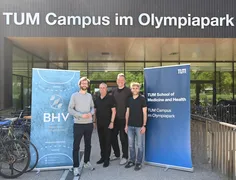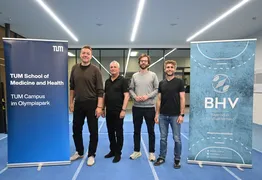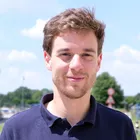In Germany, only about one in five primary school children meets the physical activity recommendations set by the World Health Organization (WHO). At the same time, more and more children are spending their day in all-day school programs. Beginning with the 2026/27 school year, Germany will gradually introduce a legal entitlement to all-day care for primary school children. However, achieving this goal is further complicated by dilapidated school buildings and an ongoing shortage of teaching staff. These challenges also affect school-based sports: many all-day programs lack regular opportunities for physical activity as well as the necessary implementation skills – a central issue that negatively impacts the overall quality of all-day care.
The project GAMES (Integrating Sports into All-Day Education) was initiated by the Associate Professorship of Didactics in Sport and Health in collaboration with the Bavarian Handball Federation (BHV) – a partnership that has existed since 2017 – and directly addresses this gap. It supports Bavarian handball clubs and aims to empower them to actively and sustainably help shape the school all-day landscape. The project is funded by the BHV with a total amount of €105,000.
Prof. Dr. Filip Mess, head of the Associate Professorship of Didactics in Sport and Health, explains: “The continuation of the trusted partnership between the Bavarian Handball Federation and my chair at TUM through 31 December 2027 opens up powerful opportunities for shaping the field of all-day schooling: on the one hand, through academic research, and on the other, through practical sports education – for example, by translating current topics like the ‘Half Hour of Movement’ for primary school children into practical formats for organized sport.”
The Bavarian Handball Federation has made “All-Day Schooling” a central strategic goal of its current term and aims to support Bavarian handball clubs in sustainably integrating this topic into their children’s and youth development work. “With GAMES, we are creating a foundation that enables handball clubs in Bavaria to see all-day care as an opportunity. Our goal is to equip them with tools that allow them to become sustainably embedded in schools,” says BHV President Georg Clarke. To that end, six tailor-made work packages have been developed, covering key aspects of the federation’s vision. These include the collection of relevant data, qualification measures, the production of publications, event series, and the promotion of concrete opportunities for cooperation.
The three-year GAMES project pursues a set of core goals that can dynamically adapt to evolving state-level frameworks and can be adjusted swiftly. Initially, it aims to systematically assess the current status of school partnerships among the roughly 500 handball clubs in Bavaria, in order to identify existing programs and untapped potential.
Based on these findings, clubs will be presented with actionable pathways for expanding their involvement in all-day school activities. “Handball as a sport will be taught using movement-rich, age-appropriate games involving hands and balls, based on the LehrplanPLUS of the Free State of Bavaria – easily accessible and precisely tailored to the needs of primary school children,” explains Ben Schulze, research associate at the Associate Professorship of Didactics in Sport and Health, who is also a member of the German Sports Youth’s expert panel on all-day education.
Another focus of the project is on qualification: clubs are to be empowered through targeted measures to offer age-appropriate programming and to recruit suitable professionals for working in school environments. In addition, the project aims to support clubs in better understanding and accessing public funding at the state and municipal level – including through a practical guide on financing. Finally, the initiative will be implemented directly in selected model regions.
“A key benefit of the project for children is the promotion of additional opportunities for physical activity in the all-day school context. Creative and academic activities often take precedence, while sports are left behind. The GAMES project creates more opportunities for children to engage in physical activity, which has a positive impact on their overall behavior and activity levels,” concludes Prof. Mess.
At the same time, the project benefits from close collaboration with the Bavarian Handball Federation, as well as with other institutions such as the Bavarian Sports Youth, the Bavarian State Sports Association, and the Bavarian Ministry of Education. These partnerships enable the Chair of Sport and Health Education to take on a key role as a facilitator and mediator, bringing together all relevant actors to sustainably embed sport into the all-day school system.
To the homepage of the Associate Professorship of Didactics in Sport and Health
To the homepage of the “GAMES” project
To the homepage of the Bavarian Handball Federation
Contact:
Prof. Dr. Filip Mess
Associate Professorship of Didactics in Sport and Health
Am Olympiacampus 11
80809 Munich
Phone: +49 89 289 24520
Email: filip.mess(at)tum.de
Ben Schulze
Associate Professorship of Didactics in Sport and Health
Am Olympiacampus 11
80809 Munich
Email: ben.schulze(at)tum.de
Text & photos: Bastian Daneyko



